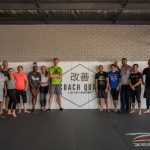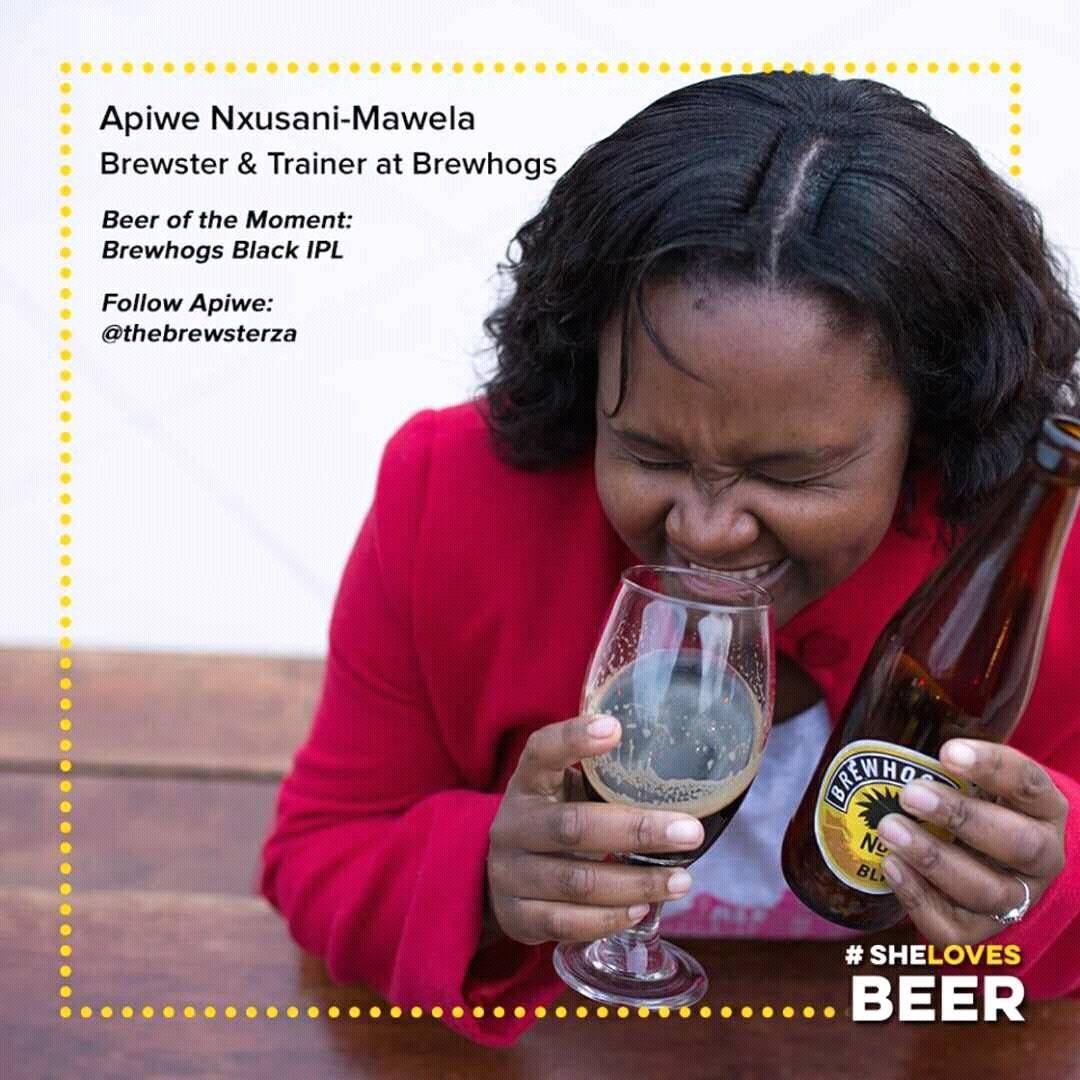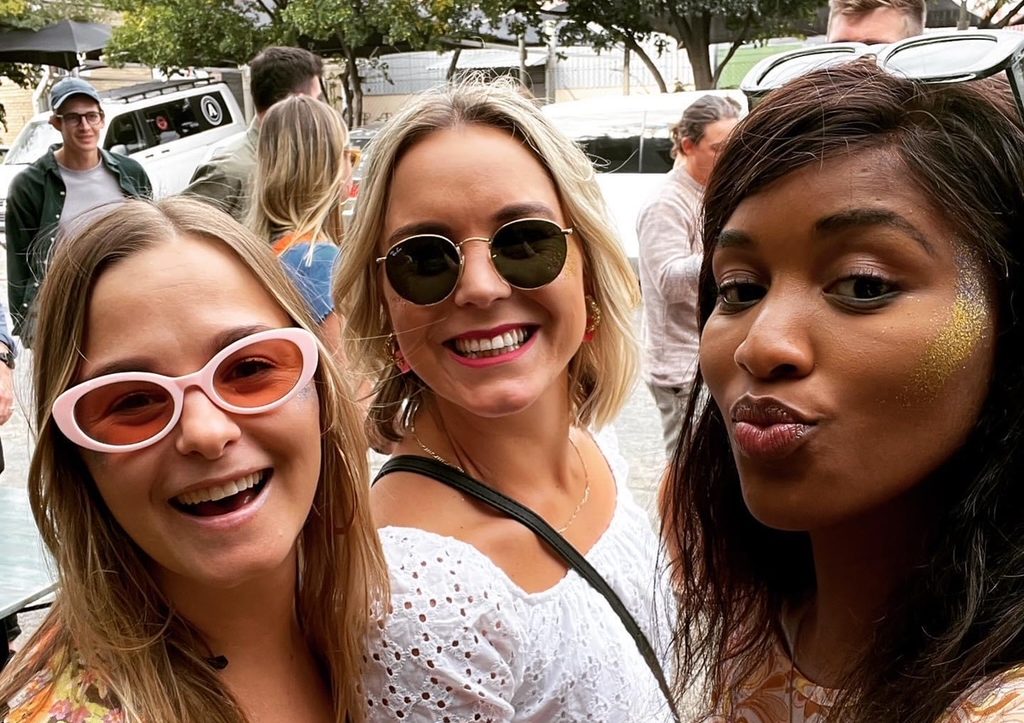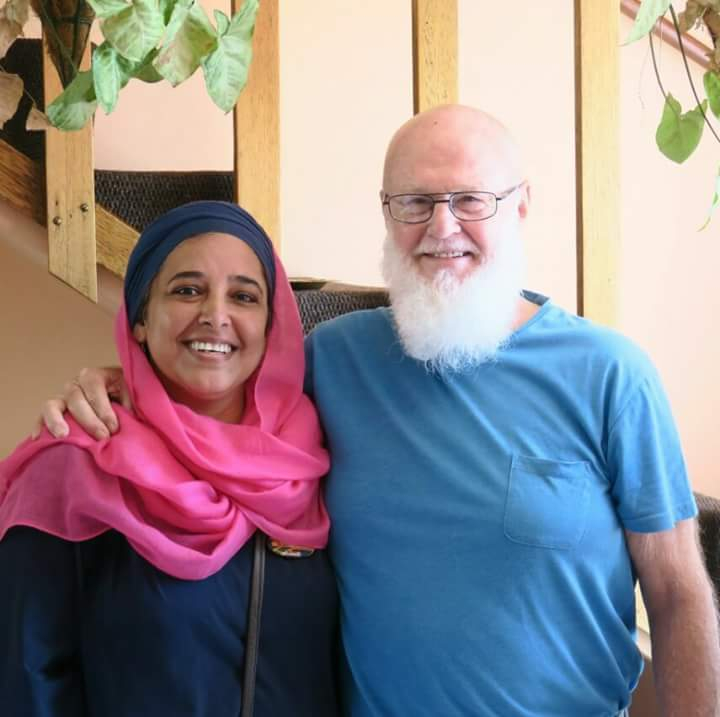
The Company We Keep: Auntie Bilqees
The Company We Keep is a column on the CN&CO blog that profiles some of the most interesting people in our networks. Here we share the details of the lives of people we know, showcasing the extraordinary diversity of our society and proving that people truly are at the heart of everything we do.
I’ve chosen to write about my Auntie Bilqees Baker. Or just “Auntie Bilqees”. Yes, the “auntie” does need to stay at the beginning of her name; I wouldn’t call just by her first name and this stays true in my writing. She is one of the inspirational women I am fortunate enough to learn from and call family.
My Auntie Bilqees and my Uncle Adam, her husband, came into my life because they are dear friends of my mum’s. I don’t remember meeting them, they’ve just always been there and they are like a second set of parents to me. I remember being a young child spending school holidays in Bo-Kaap with them and their two young sons. Their oldest son is only a few years younger than me so through them I also gained two siblings. I also remember, from not as far back in my memory, visiting them while I was studying in Cape Town and having great laughs in their kitchen or lounge after dinner in their kitchen. I still see them as often as I can and we chat all the time.
My Auntie Bilqees has such a warm, kind soul and her smile warms my heart every time I see her or think about it…like I am now with a warm heart. She is a loving person who always has good advice to share, kind words, and love. In fact, one of the many awesome things about my aunt and uncle is that they are both these warm, wonderful, loving people. Could they be a better match?
Besides being a number wonderful things (like a loving mother and aunt, a wonderful wife, an activist, tour guide, fount of knowledge, and an inspiration) Auntie Bilqees is an active member of her community and an advocate for it; she spends her days making sure the lives of the people around her are better. Something she does for me every time I talk to and see her.
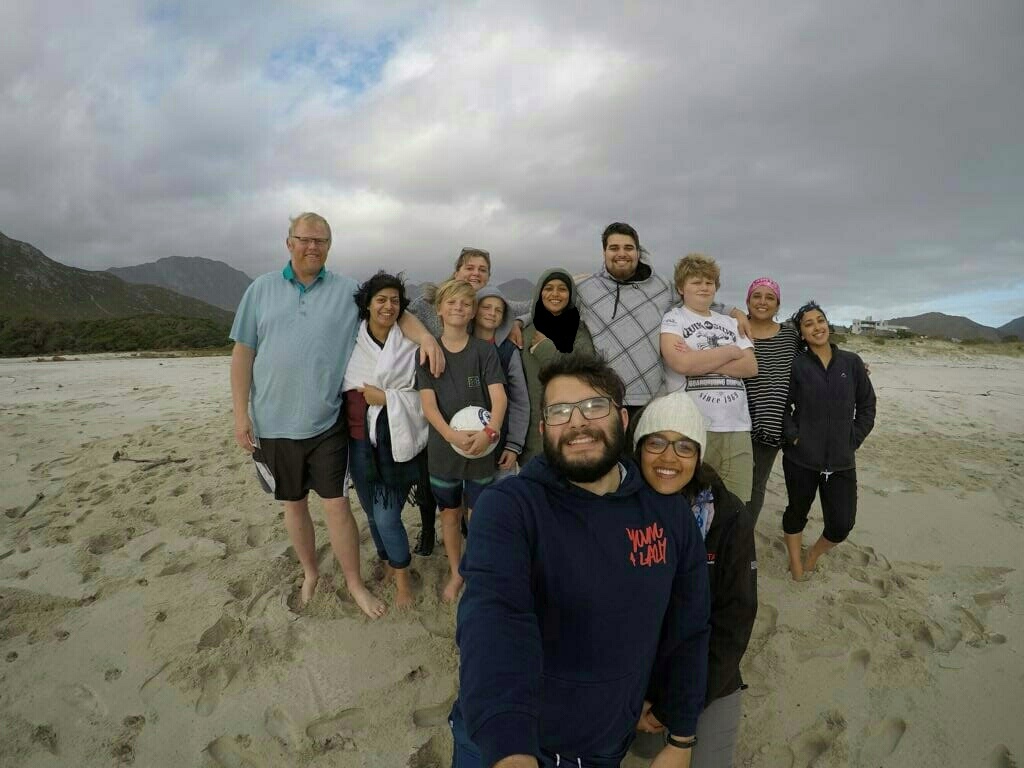
Auntie Bilqees, Uncle Adam, and their wonderful children and grand children
As we look to the Global Citizen Festival where people had to do good deeds to earn tickets to see acts like Beyoncé, Femi Kuti, Ed Sheeran, Tiwa Savage, Pharell, Wizkid, and more I think it’s a great time to celebrate someone who does good deeds every day because she wants to. It’s extra special that she is someone I know, admire, and love dearly. Read this interview and you will understand why those of us who know her, love her and are inspired by her.
Lethabo-Thabo: Auntie B, tell us about the work you do in your local community.
Auntie Bilqees: I fell in love with the history of my area, the Bo-Kaap, when I moved here from Johannesburg and I decided to share the passion that it became with others by becoming a tourist guide. It was my husband Adam, who had embraced Islam a couple of years before we married, who insisted on living here because ‘his heart told him so’ and so our two younger children grew up ‘in the streets’ of Bo-Kaap. I soon recognised surrogate mothers, sisters, and families and enjoy this love to this day. I also work with a group of amazing women in a non-profit organisation that we started almost 10 years ago. Our aim is to create income opportunities for women in Bo-Kaap through various projects. We also run a Food with Love Kitchen weekly, which is a giving programme, which we started when we realised the need for this kind of support for some families in our community. The other giving programme is an annual one which we manage for Fashion World, a national retailer, to distribute new clothing to communities in need in the Western Cape once a year.
Lethabo-Thabo: Why do you work in your local community?
Auntie Bilqees: Being a tour guide allows me to share a history that wasn’t known to me before I came to live in Bo-Kaap. When I was at school, I wasn’t taught about enslaved people, the political exiles or the nobility who arrived at the Cape from East Africa, India, Madagascar, Sri Lanka, Indonesia, and Malaysia. Knowledge was limited to what the apartheid government wanted you to know. I love listening to the stories of elders and neighbours, of traditions and a time before the apartheid government declared Bo-Kaap a ‘Cape Malay’ area, a time when families shared what they had, celebrated different religious festivals together, attended the local ‘church’ school…difficult times and good times, together.
As beautiful as our area is, we have many families who are affected by unemployment. As a result, we have over crowded homes and need for food, money for electricity, schooling, etc. Bo-Kaap attracts thousands of tourists annually and we seek to find ways to benefit our community through this.
Lethabo-Thabo: You mentioned that information on Bo-Kaap was limited when you went to school. Sadly, I think many South African’s still don’t know about the area, the people living there, and its significance and why we need to preserve it and invest in it.
Auntie Bilqees: Bo-Kaap could technically be the first suburb of colonial South Africa. Its homes date back to the mid 1700s, with beautiful flat-roofed Georgian-styled homes. It still has some cobbled roads, that once had horses and carts, where tar hasn’t been used to suit modern transport like it is on other roads. Houses are colourfully painted – a tradition that came from a time when a struggling community could afford to ‘splash out’ with a bit of colour for Christmas, Eid, or weddings, brightening their lives for a while and never losing hope. The contrast in colours appealed to the community and very naturally continued for some while others had to leave their council-owned homes white or cream. Of course, these regulations no longer apply today.
Food, traditions and trade were ‘exotic’ and specialised. To this day, older generations of Cape Town come looking for old tailors and dressmakers. The athaan or call to prayer floats melodiously from mosques as it did 200 years ago. The smells and sounds, and the warm and friendly people…this is Bo-Kaap. It’s a step into a past and community that influenced the Cape in so many ways. To lose it would be to lose the essence of real Cape Town – the Cape Town that was strewn to the Cape Flats during apartheid but never lost its flavour.
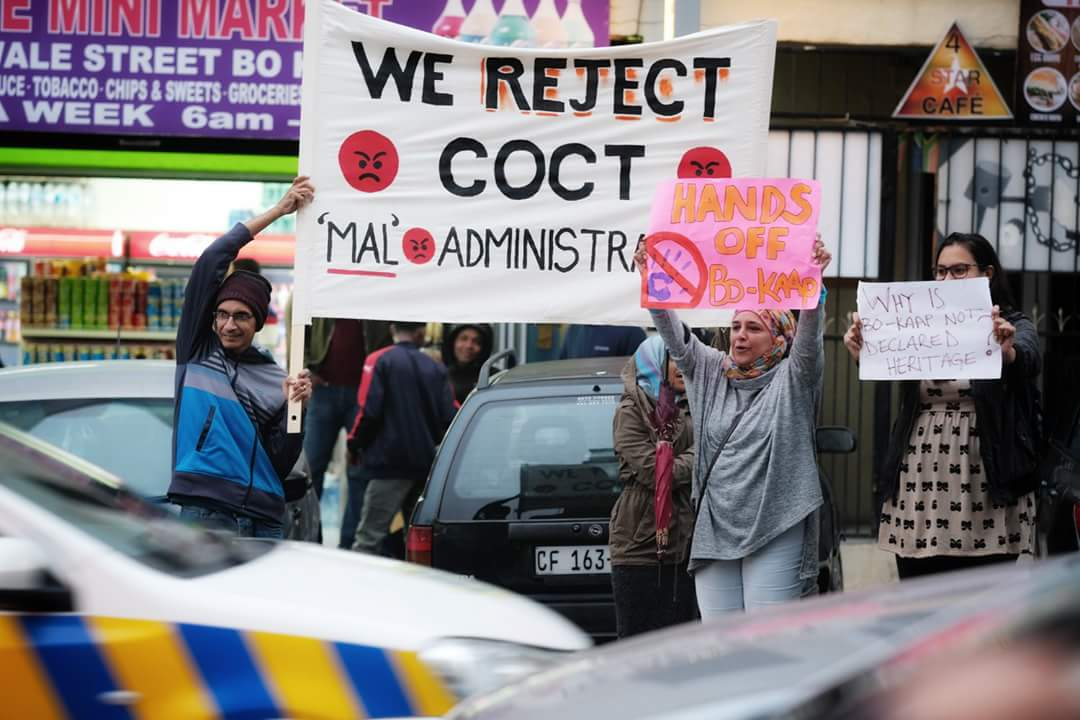
Auntie Bilqees and a few community members raising awareness about Bo-Kaap’s history and the need to protect its heritage
Lethabo-Thabo: Your passion for this community is infectious! How can people get involved? Surely, we can do more?
Auntie Bilqees: Bo-Kaap’s location is its biggest threat today. We are affected by gentrification and a mushrooming of Airbnbs, unsightly developments, and guest houses. In recent years, the City of Cape allegedly allowed for big money to be invested into Cape Town by allowing developers to purchase and build on land in Bo-Kaap. For an old historic enclave, this was only possible by not allowing for heritage protection. Yes, we do NOT have heritage protection, while places like Tamboerskloof and Camps Bay, ex-White residential areas, have heritage protection. Our community came out to protest earlier this year when we started seeing huge trucks and cranes dotting our landscape and damaging roads. We needed answers and were never given them. We had petitions signed, closed off roads with peaceful boekas (breaking of the fast) in Ramadaan, elders with placards on street corners, and eventually frustrated youth burning tyres to create awareness. One of the developers went so far as to take out an interdict against our community, the Bo-Kaap Civic association, and a few individuals stating that we were not allowed near his site as we were seen as a threat. We need more voices behind ours; we need public figures, artists, activists, and politicians at local, national and international level to stand up and speak with us. Write about it, sing about it, paint about it….do what you do best and make people aware through your networks. Then ask them to do the same. President Ramaphosa spoke about it…once. We need ongoing noise about our plight. This history belongs to all of South Africa. We no longer bow to propaganda education – let’s make that clear.
Lethabo-Thabo: What are you most passionate about and why?
Auntie Bilqees: Sharing the history of Bo-Kaap which I hope will lead to protecting it and building better lives.
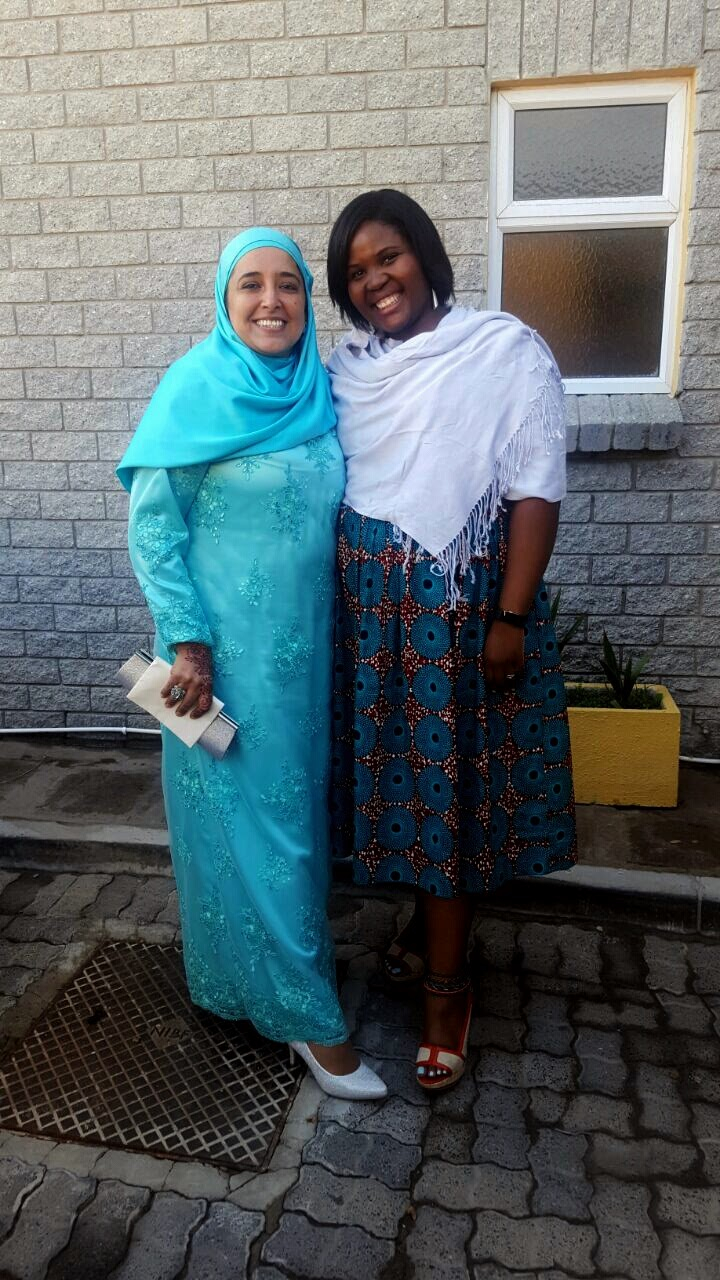
Auntie Bilqees and me at her son’s wedding
Lethabo-Thabo: How do you think we can build the best South Africa possible?
Auntie Bilqees: I truly believe that we need to believe in GOD; God as He is to you or to me. When we have faith, we are accountable to goodness, to sharing, and to helping with compassion and dignity…values that every religion espouses. This will allow for our country to flourish because then we think in the spirit of ubuntu, kanallah, and namaste. We honour life and assist in any way God has talented us individually to do so.
Lethabo-Thabo: What are some of the best lessons you’ve learnt?
Auntie Bilqees: Firstly, everything is possible with Bismillah – sincere trust and faith in remembering God in absolutely everything. I’ve learnt to be compassionate, to assist without diminishing the honour of the next person, and I’ve learnt that lessons continue no matter what my age. Lastly, I’ve learnt to be present, especially with my family. It’s not always easy because when I’m passionate, I commit and often get carried away …but it’s not impossible. I keep trying.

